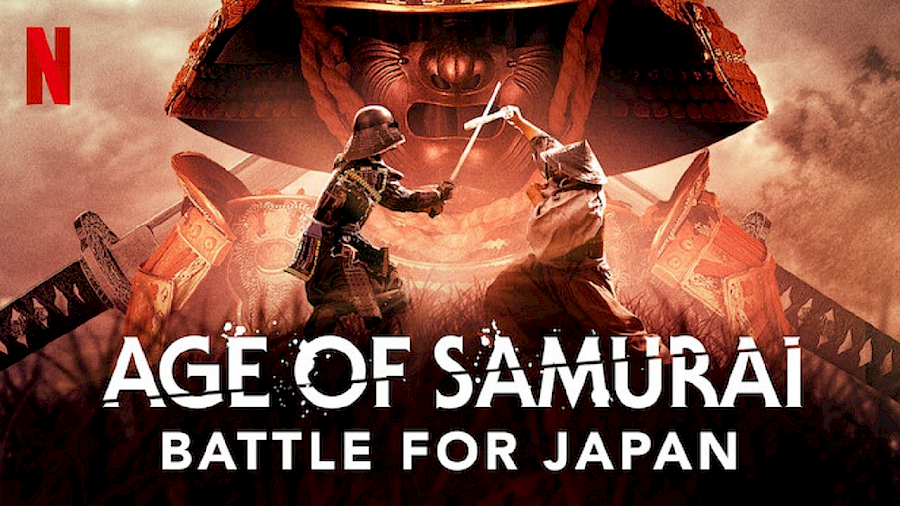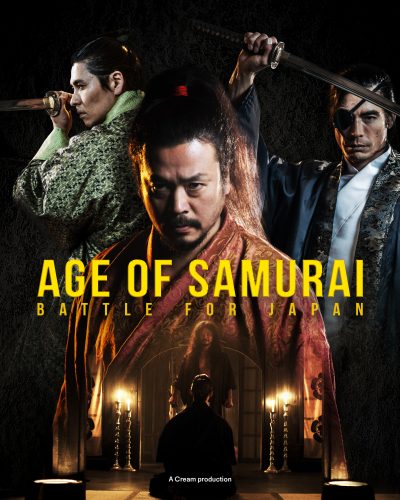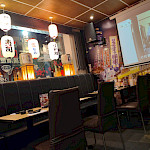3 Feb 2024
JETAA News

12th February 2022
Review: Age of Samurai: Battle for Japan
Age of Samurai: Battle for Japan is a fascinating and exciting documentary series about the unification of Japan.
Netflix has gathered a large group of historians from Japan, the UK, and America to tell the tale of the Nobunaga and the feudal lord's who used his conquest to try and gain power for themselves. One of these historians is Lesley Downer, Jet alumni and the focus of our most recent JET Spotlight. She gives a much valued feminine take on the period, highlighting the influential women who can often be overlooked.
It was an interesting choice to keep two of the most important women named by their nicknames. Yodo-dono is referred to almost exclusively as lady Cha-cha, and Kōdai-in as Nene. These names make the women stand out even more than they already do amongst the gruff samurai and softens them to the audience despite their involvement in this violent world. The women are never presented as weak in Age of Samurai; they all seem to have political schemes of their own and are shown to be rivals to the men, not militarily but politically.
From the very first minute of the series, we are transported into a cinematic world. Age of Samurai: Battle for Japan relies heavily on dramatic reenactments. The programme is made up of scenes with little dialogue narrated by military history experts. The acting in these sections is superb. Actors like Hayate Masao, who plays Tokugawa Ieyasu, convey complicated emotions with a single look that can be understood through any language barrier. The narration provides context, but a dramatic presentation is what keeps viewers watching.
The runaway fan favourite seems to be Masamune Date, the One-Eyed Dragon, played by Hideaki Ito. Whilst not the most influential figure he is definitely an important player in the political game. The historians always seem jazzed whenever he would appear. Ito brings such style and panache to the performance that you can be swept up in the obvious favouritism the showmakers had for Masamune.

This charasmatic performance can almost make you forget that Masamune's history is not very well recorded, despite his many depictions in literature and film. The historians of the show present it as fact that he pulled out his own eye to overcome the shame of being disfigured by smallpox. In reality it is not known how he lost his eye, and whilst many do say he removed it himself others say it was surgically removed by a trusted friend. That's the thing about history. You can often have multiple sources depicting events quite differently, yet in age of the Samurai all of the events are depicted as indisputable. Rarely does the show go into the ambiguity of history and has a habit of including specilation, or famous scenes from other dramatisations, as fact.
It can often feel like you are watching a fictional drama series rather than a documentary. The showrunner Matt Booi told Den of Geek that he wanted to make the show like a "real-life game of thrones". They definitely lean more into character motivations, foreshadowing and gruesome depictions of violence just as Game of Thrones did. The violence is often gratuitous, and whilst the period was famously violent, there are a few too many shots of severed heads and opened stomachs for a casual viewing. This is not a programme for the light hearted or squeamish.
This fusion of drama and historical lecture is an interesting watch. You don't need to know much about the period of history going in; perhaps it is better even not to. It is undeniably exciting, with high octane samurai action that tells an important story of how Japan came to be the nation we know today.
Age of Samurai: Battle for Japan can be watched onNetflix now









